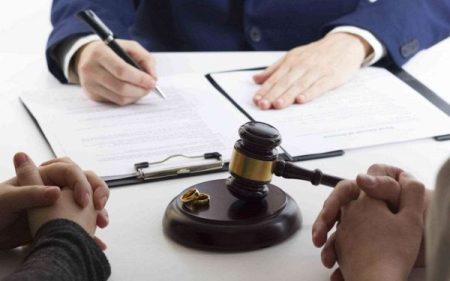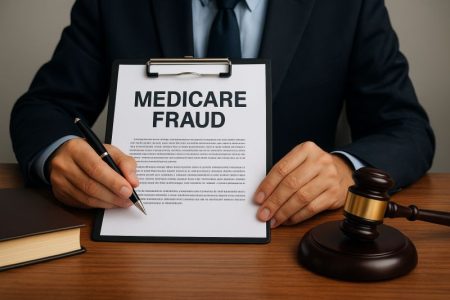Truck crashes are never minor. When an 18-wheeler collides with a car, the outcome is often devastating, not just in terms of injuries, but also in the complexity of what happens next. If you’re wondering who takes the blame, you’re not alone. The answer isn’t always straightforward, and that’s where things get messy fast.
Responsibility doesn’t always fall neatly into one category. It’s not just about the driver sitting behind the wheel. These accidents involve multiple layers, and if you don’t understand who might be on the hook, you could miss out on holding the right parties accountable—especially when factors like upgrading your truck’s performance come into play and influence how a vehicle operates on the road.
It’s Not Always the Driver’s Fault
Yes, the truck driver is the one operating the vehicle. And yes, if they’re distracted, speeding, or under the influence, they can absolutely be at fault. But here’s the twist: even when a driver does something wrong, they’re often not the only one responsible.
In many cases, the driver is an employee or contractor working under tight schedules, pressured to meet unrealistic deadlines. If that pressure contributed to the crash, the company they work for could be on the line, and that changes the game entirely.
The Trucking Company’s Role
This is where accountability starts to widen. Trucking companies have a legal responsibility to hire qualified drivers, provide proper training, and make sure their vehicles are maintained. If they cut corners, they can be found negligent.
Let’s say they knew a driver had a poor safety record and still sent them out on the road. Or they skipped routine maintenance to save time. These decisions, and the culture behind them, are often uncovered during investigations. And they can be just as important as what happened at the scene of the crash.
This is why people often turn to Zinda Law Group’s truck accident lawyers in El Paso early on. Not just to file a claim, but to dig into the deeper layers of liability that aren’t always visible at first glance. With commercial cases, you need someone who understands how to follow the paper trail and can figure out whether the company was reckless behind the scenes.
Don’t Forget the Truck Itself
Here’s something a lot of people overlook: mechanical failure. A crash might look like a driver error on the surface, but it could be linked to a defective part or a maintenance issue that was ignored.
This opens the door to even more potential liability. Maintenance crews, vehicle manufacturers, or even third-party repair shops can end up in the spotlight.
Brake failure. Tire blowouts. Steering issues. These problems don’t always give a warning. But if it’s found that someone knew or should have known and did nothing, they could be held accountable for the consequences.
Was the Load Secured?
Another player in this complex puzzle is whoever loaded the truck. You might not think much about cargo, but it matters more than you’d expect.
If the load shifts during transit because it wasn’t secured properly, the truck can become unstable. It might jackknife or tip over. And in those situations, the person or company responsible for loading it might share the blame.
Sometimes, cargo isn’t just heavy, it’s hazardous. Chemicals, flammable materials, oversized items. These require special handling, and if the proper protocols aren’t followed, the risk skyrockets. The responsibility for that doesn’t fall on the driver alone.
The Role of Government and Road Conditions
It’s easy to look at a crash and point the finger at someone behind the wheel. But what if the crash was influenced by poor road design? Or a missing guardrail? Or a malfunctioning traffic light?
Government entities aren’t immune to liability. In rare but real cases, they may be responsible for failing to maintain safe driving conditions. That doesn’t mean they’re easily held accountable — claims against government bodies often have shorter deadlines and different rules — but they’re not off the hook entirely.
Road construction zones can also add a layer of confusion. If signage was misleading or visibility was compromised, those overseeing the work could be looked at during an investigation.
Insurance Companies and Their Stake
Insurance plays a massive role in how these cases unfold, especially when multiple parties are involved. Every player, from the trucking company to the vehicle manufacturer, typically has their own policy. And none of them are eager to accept responsibility.
Expect finger-pointing, expect delays, and expect a fight over who pays what. Insurers will often try to shift blame or minimize their payout. That’s why having legal support that understands commercial trucking liability—and how documentation like Form 2290 ties into ownership and tax responsibilities—can make a huge difference.
You’re not just dealing with one insurer. You’re dealing with a maze of them, each trying to protect their client’s interests.
Why It Matters Who’s at Fault
At the end of the day, figuring out who’s responsible determines how compensation is handled. Medical bills, lost wages, vehicle damage, long-term recovery… all of these things hinge on establishing liability.
If the wrong person is blamed, or if a key player is left out of the equation, you might not get what you’re entitled to. That’s why early investigations are so important. Evidence can disappear. Memories fade. And the longer you wait, the harder it becomes to get a clear picture of what actually happened.
It’s not about blame for the sake of blame. It’s about getting justice in a system that doesn’t make it easy.
So Who Really Is Responsible?
There’s rarely a single answer. In most truck crash cases, the fault is shared. It could be:
- The driver for reckless or negligent behavior
- The trucking company for bad hiring practices or failing to maintain their fleet
- The maintenance crew for ignoring safety issues
- The manufacturer for defective parts
- The cargo loaders for improper weight distribution or hazardous materials
- The government for unsafe roads or poor traffic control
Each of these parties can play a role. And often, they do.
What Happens Next Is Critical
What you do in the hours and days after a truck crash can shape everything. Documentation matters. Witnesses matter. So does knowing where to look and who to talk to. But unless you know the full scope of who might be responsible, you could miss your shot at fair compensation. These aren’t simple cases. They’re high-stakes, high-pressure situations involving serious injuries and powerful companies. Knowing who’s really responsible takes more than guesswork. It takes digging deep, asking tough questions, and refusing to stop at the obvious answer.






